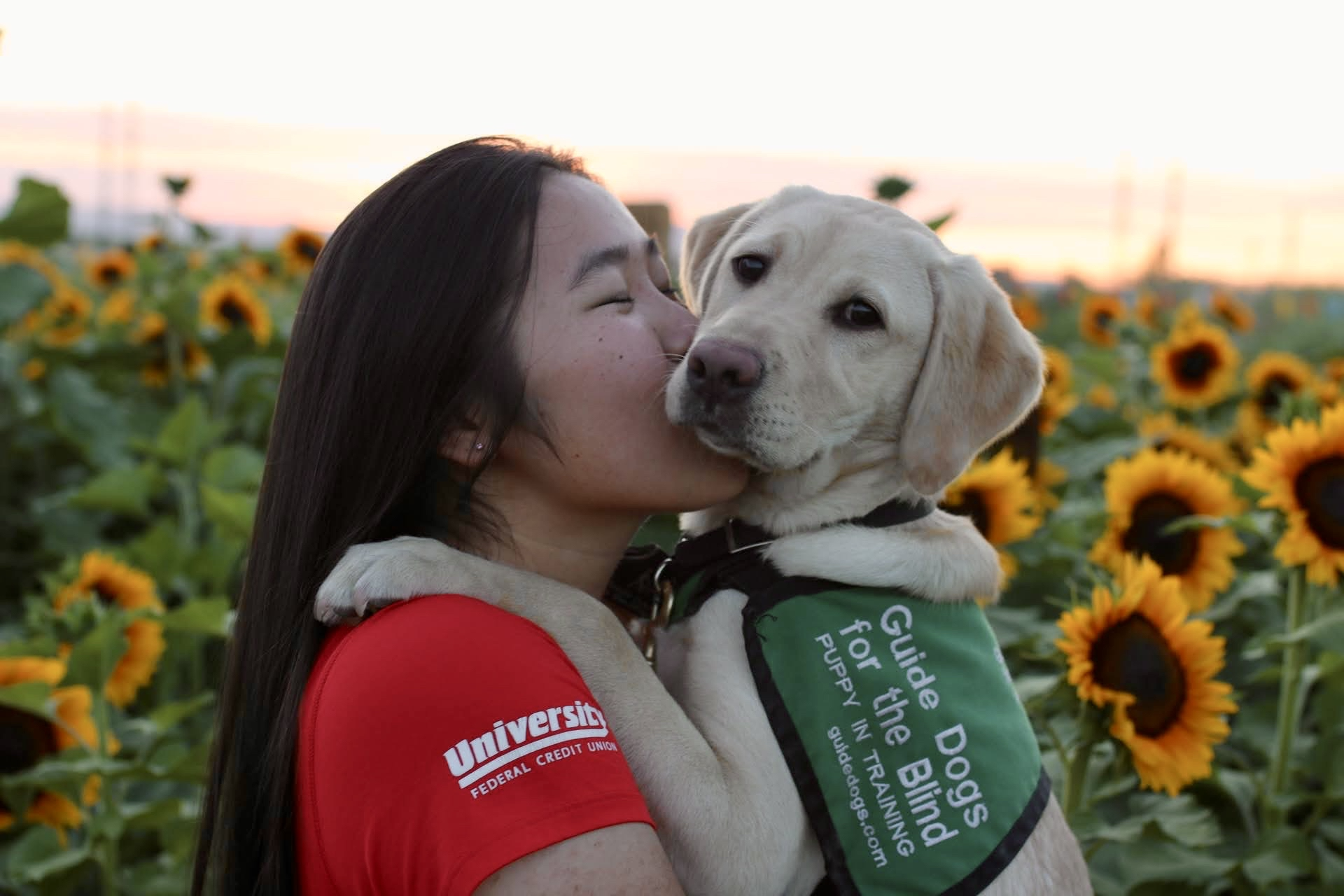Why does one puppy become a successful guide dog, breeder dog, or K9 Buddy and another one does not? “That’s the big question we’re trying to understand,” says Kristin Lucas, GDB’s Canine and Community Operations Officer. In 2017, GDB launched a Puppy Transformation Project to determine what factors comprise this “secret sauce” so GDB can serve more clients without breeding more dogs.
Sarah Blevins is GDB’s Director of Puppy Raising. Her team oversees upwards of 3,000 puppy raising volunteers in 10 Western United States. “We know that a dog’s DNA is critically important to their success. That’s why we breed our own dogs so that they have the genetic traits and good health to do this important work. But we’ve also found that how a puppy is raised can make a profound difference in how successful they are when they return to campus for training.”
One of the biggest findings revealed that when puppy raisers understand that their socialization and time with the puppy matter, statistically that puppy will have a better chance at succeeding. Given this revelation, Sarah’s team examined what other factors help predict a successful puppy raiser. They found three primary factors make a difference:
- Puppy raising leaders who are adaptable teachers.
- Puppy raising volunteers who enjoy receiving constructive, timely feedback.
- Consistent puppy training by all people in the home.
Sarah says the project also challenged some of GDB’s assumptions. “We thought the environment a dog was raised in—such as the city or country—might be a key factor in predicting how successful a dog would be in a particular environment. It wasn’t. This project helped us set aside many of our assumptions and look at the program with a fresh perspective.”
Moving forward, Sarah says GDB will strive to provide puppy raising volunteers with consistent, informative onboarding information, so that every volunteer can feel supported and be more successful from the beginning. For example, her team has developed a better screening and onboarding process for puppy raising volunteers, launched new online training materials, and initiated updated protocols to head off potential issues pups may develop in their raiser’s homes.
Prior to the Puppy Transformation Project, 38 to 42 percent of GDB’s dogs became guides, breeders, or K9 Buddies. Today, that percentage is between 45 and 47 percent. “Each percentage point we gain translates into serving more clients and stewarding our donor dollars more effectively,” explains Kristin. “We believe the Puppy Transformation Project will lay the groundwork so that a majority of our dogs will reach their full potential in our program as guides, breeders, or K9 Buddies.”




